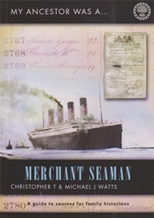I have similar issues with a whole extended family of mariners.
One place I found helpful, although tiresome to read (such tiny print!) is in the port's local newspaper archives. Mystic Seaport has indexes to some, which are helpful, as does the Sturgis Library on Cape Cod. Also, the New York papers (and probably, Philadelphia, since it was a large port) have maritime news and a column announcing comings and goings which tend to be brief, but have given me a hint or information on occasion.
I have discovered that a number of my ancestors received their protection certificates from the port they were shipping Into, not the one they shipped Out of so you might have to look in various ports Seaman's Protection Certificate books. You might try the New England Ports (especially of Newport, RI, Plymouth, MA, Providence, RI and ports of Cape Cod) which frequently delivered cargoes to and from Philadelphia.
I also had luck researching Civil War maritime records and newspapers. I found mention of two of my mariners who were in Libby Prison and Andersonville. Many of the mariners were delivering supplies to the government in support of the soldiers (including hay for the horses.) I found one record by going to Congressional Records to read claims made by owners whose cargoes or ships were captured by "the other side" when there was an official contract for delivery with the government. Some members of the merchant marines were officially in the Navy, so check those records.
Many towns are getting the records digitized and online and many have historians who are helpful.
I found one ancestor by contacting the local National Guard when I couldn't find him in Army WWI records; the Guard had a very helpful historian who discovered my ancestor had been in a RI National Guard Calvary unit that was sent to fight Pancho Villa in California and that afterwards, the Calvary Unit was sent to Europe to fight in WW1. He even found pictures of him on his horse with others of the Calvary unit.
Be as creative in your thinking as you can and don't rule out anything! Many times churches have records of parishioners volunteering; did his wife attend? And often, if you can find the handwritten online digitized town records, the clerk may have made an aside notation.
The custom house at the port will have official records of comings and going of ships; some list crew names, some not. I found the custom house records for RI in a repository in the RI Historical Society- they were not in the state government records.
Also, for some inexplicable reason, I have found some mariner records for cities on the East Coast in repositories in California...don't remember which, but they were part of a local collection on micro.
There were also local census done of those who were mariners in preparation for the Civil War - mine read "at sea" but other names had more information.
The upside to having to look everywhere is that you get quite a history lesson - which sticks with you - unlike those dates we had to memorize in junior and high school history class!
